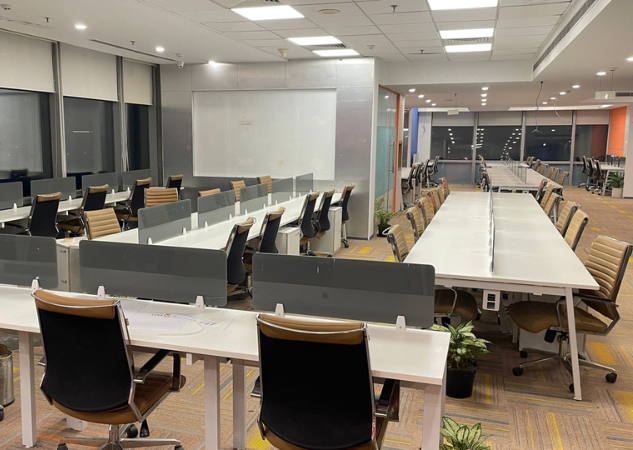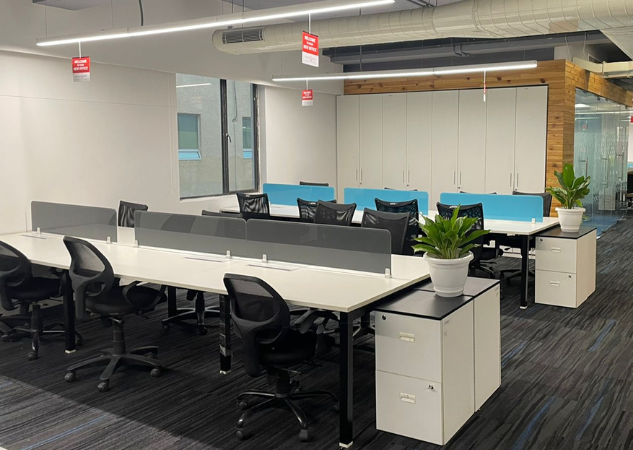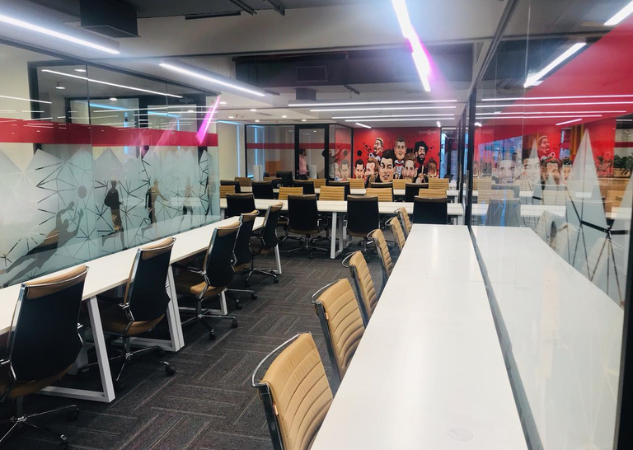In today’s fast-moving digital world, automating your business processes can save time. ChatGPT is one of the most powerful AI tools for business automation, helping startups and entrepreneurs grow smarter and faster.
💡 Are you looking for Coworking space in Gurgaon, Noida or Delhi? We are just a call away. Call Now: 08999 828282
How ChatGPT Can Streamline and Automate Your Business Processes
- What is ChatGPT and Why It Matters for Businesses?
- ChatGPT Business Use Cases: Real-World Examples
- How Entrepreneurs Can Start Using ChatGPT
- ChatGPT for Business Automation: Save Time and Money
- Using ChatGPT for Marketing Automation
- ChatGPT for Startups: Scale Smart from Day One
- Integrating ChatGPT with Business Tools
- Customer Support Automation with ChatGPT
- Market Research and Business Insights
- Creating SOPs and Training Documents
1. What is ChatGPT and Why It Matters for Businesses?
ChatGPT is an AI language model developed by OpenAI that understands natural language and generates human-like responses. For businesses, it’s a versatile tool that can handle customer queries, create content, automate emails, and more. If you’re exploring how to use ChatGPT for business, start by understanding its wide range of capabilities. Whether you’re a solo entrepreneur or managing a small team, ChatGPT can handle repetitive tasks, freeing up your time for strategic decision-making. It works 24/7, doesn’t need breaks, and constantly learns — a real digital assistant that never sleeps.

2. ChatGPT Business Use Cases: Real-World Examples
There are several practical ChatGPT business use cases. For instance, small eCommerce businesses use it to automate customer support, generate product descriptions, and send follow-up messages. Content creators use ChatGPT to write social media posts, blogs, and even scripts. HR teams use it to write job descriptions or screen resumes. For entrepreneurs, it becomes a multi-purpose assistant that saves hours every week. If you run a consultancy or digital agency, ChatGPT can generate client proposals or analyze reviews. The more creatively you apply it, the more you get out of it.
3. How Entrepreneurs Can Start Using ChatGPT
If you’re an entrepreneur wondering how to use ChatGPT for business, the first step is identifying repetitive tasks you’d like to automate. Start with simple things like writing emails, managing your calendar, or summarizing meeting notes. As you get comfortable, expand to content creation, market research, or customer service responses. Most ChatGPT for entrepreneurs use cases don’t require any coding. You can use the free version or upgrade for more powerful tools like file upload and custom instructions.
Also Read: How to Prepare Your Small Business for the Next Wave of AI Innovation?
4. ChatGPT for Business Automation: Save Time and Money
One of the biggest advantages of ChatGPT for business automation is how quickly it reduces manual work. From writing emails to drafting sales pitches, ChatGPT can do hours of work in minutes. Instead of hiring a large team, entrepreneurs and small businesses can automate many tasks using ChatGPT. Use it to generate sales scripts, create client follow-ups, or automate internal documentation. With simple prompts, you can build consistent processes that improve speed, accuracy, and output — all without increasing overhead costs.
5. Using ChatGPT for Marketing Automation
ChatGPT marketing automation is transforming how startups manage content. You can use it to generate email campaigns, write ad copy, craft social media posts, and even A/B test headlines. It’s like having a personal copywriter on-demand. For small marketing teams, this tool can accelerate campaign creation, boost engagement, and keep brand messaging consistent. It also helps brainstorm ideas, write SEO-friendly blogs, and analyze competitors. When combined with tools like Zapier or Google Sheets, ChatGPT becomes part of a broader automation ecosystem.
6. ChatGPT for Startups: Scale Smart from Day One
Startups often operate with limited resources. That’s where ChatGPT for startup operations makes a real difference. It can help founders manage multiple roles by automating customer service, social media, product research, and internal communication. Instead of hiring early, startups can leverage AI to test markets, get customer feedback, and iterate faster. ChatGPT allows quick experimentation — from writing pitch decks to handling FAQs on your website. With the right strategy, it becomes a co-founder who never takes a break.
7. Integrating ChatGPT with Business Tools
For even greater efficiency, combine ChatGPT with other AI tools for business automation like Zapier, Notion, Trello, or Slack. These integrations help automate workflows — such as pulling emails from Gmail, summarizing documents, or posting to social media automatically. Entrepreneurs can build simple automation chains without any coding. For example, new client inquiries can trigger ChatGPT to draft an initial reply, saving time and ensuring fast response. Integration expands the potential of ChatGPT from a standalone tool to a core part of your business systems.
8. Customer Support Automation with ChatGPT
One of the most popular ChatGPT business use cases is customer support. You can train ChatGPT to answer FAQs, process return policies, provide product info, and troubleshoot basic issues. It provides instant responses 24/7, improving customer experience while reducing response time. You can integrate it with chatbots or website messengers to handle thousands of queries with zero human intervention. This not only boosts satisfaction but also cuts costs associated with a full-time support team.
💡 Are you looking for Coworking space in Gurgaon, Noida or Delhi? We are just a call away. Call Now: 08999 828282
9. Market Research and Business Insights
ChatGPT can help with market research by summarizing industry trends, analyzing customer feedback, or extracting key points from reports. This is a major plus for entrepreneurs using ChatGPT to stay ahead of competition. You can ask it to compare competitors, analyze product reviews, or summarize complex research. For small businesses without a research team, ChatGPT becomes a helpful analyst that saves hours of reading and compiles useful insights. It’s a quick way to make informed decisions without paying for expensive reports.
10. Creating SOPs and Training Documents
Every growing business needs clear Standard Operating Procedures (SOPs) and training materials. ChatGPT can help draft these documents quickly. Whether it’s onboarding steps, process guidelines, or internal FAQs, the AI can generate structured documents that can be shared across teams. Entrepreneurs often overlook documentation, but it’s crucial for scaling. Using ChatGPT for business automation ensures your operations are consistent and easy to transfer to new hires. It also helps maintain quality and reduces reliance on verbal instructions.
ChatGPT is more than just a chatbot — it’s a powerful automation partner for entrepreneurs and small businesses. Whether you’re streamlining customer support, marketing, or internal processes, the tool can save time and improve quality. By combining ChatGPT with other AI tools for business automation, you unlock even more value. Start small, explore creatively, and scale your usage as your business grows. The future belongs to those who automate smartly.
The Office Pass (TOP) offers flexible coworking spaces that help your business grow while keeping costs in check. Call 8999 828282 today to find the perfect workspace and take your business automation to the next level.
Frequently Asked Questions (FAQs)
Question: What is ChatGPT and how can I use it for business?
Answer: ChatGPT is an AI tool that helps automate writing, customer support, and business tasks. You can use it to create content, respond to emails, write proposals, and analyze data. It’s a time-saving tool for entrepreneurs and teams.
Question: Is ChatGPT good for startups?
Answer: Yes. ChatGPT for startup growth is ideal because it saves money and time. Instead of hiring multiple people early, startups can use it to automate marketing, sales scripts, customer support, and more.
Question: Can ChatGPT handle customer service?
Answer: Absolutely. You can train ChatGPT to answer common questions, troubleshoot issues, or provide updates to customers. When connected to a chatbot platform, it offers 24/7 automated support.
Question: How does ChatGPT help with content creation?
Answer: ChatGPT can generate blog posts, product descriptions, ad copy, social media posts, and email newsletters. It’s especially useful for marketing automation tasks.
Question: Is ChatGPT secure for business use?
Answer: Yes, but you should avoid sharing sensitive data. For most general tasks like content writing or customer responses, it’s safe to use. For added security, explore enterprise-level tools or private instances.
Question: How do I integrate ChatGPT with other tools?
Answer: You can use platforms like Zapier or Make to connect ChatGPT with Google Sheets, Slack, Trello, and other apps. These integrations help automate workflows and reduce manual input.
Question: Can ChatGPT help with business planning?
Answer: Yes, it can assist with SWOT analysis, competitor research, market trends, and writing business plans. Many entrepreneurs use ChatGPT to brainstorm and organize strategies.
Question: Is ChatGPT suitable for non-technical users?
Answer: Definitely. You don’t need coding knowledge. Just type in natural language prompts, and ChatGPT responds. It’s user-friendly and perfect for beginners exploring AI tools for business automation.
Question: Can I use ChatGPT for lead generation?
Answer: Yes. It can help write outreach emails, generate lead magnets, or qualify leads based on website data. It’s an effective part of your marketing and sales funnel.
Question: What’s the best way to start using ChatGPT for business?
Answer: Start with one task—like writing emails or summarizing calls. Then explore other use cases like marketing or customer service. As you learn, integrate it into more areas of your business.









